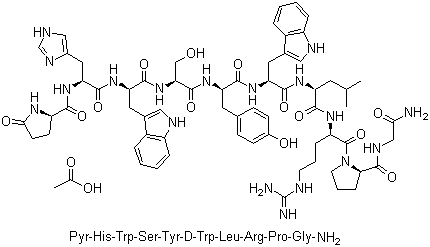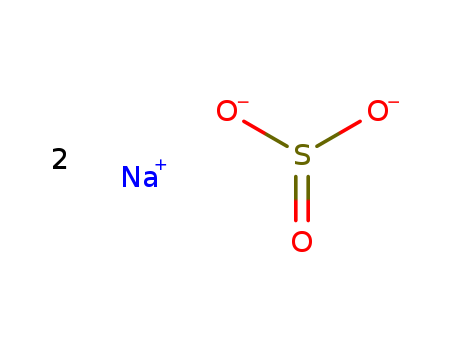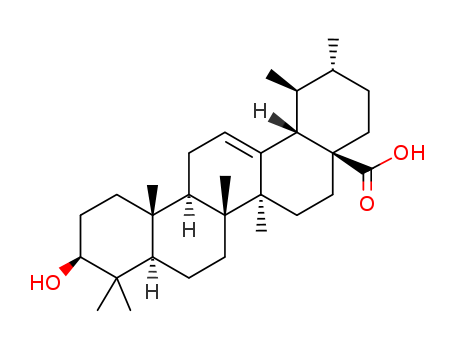
1302-78-9
- Product Name:Bentonite
- Molecular Formula:Al2O3.4(SiO2).H2O
- Purity:99%
- Molecular Weight:360.31
Product Details;
CasNo: 1302-78-9
Molecular Formula: Al2O3.4(SiO2).H2O
Appearance: gel, or solid if dry
Factory Sells Best Quality Bentonite 1302-78-9 with stock
- Molecular Formula:Al2O3.4(SiO2).H2O
- Molecular Weight:360.31
- Appearance/Colour:gel, or solid if dry
- Vapor Pressure:4.93E-06mmHg at 25°C
- Refractive Index:1.503
- Boiling Point:381.8oC at 760mmHg
- Flash Point:184.7oC
- PSA:189.16000
- Density:2~3 g/cm3
- LogP:-2.61890
Bentonite(Cas 1302-78-9) Usage
|
Production Methods |
Bentonite is a native, colloidal, hydrated aluminum silicate, found in regions of Canada and the USA. The mined ore is processed to remove grit and nonswelling materials so that it is suitable for pharmaceutical applications. |
|
Pharmaceutical Applications |
Bentonite is a naturally occurring hydrated aluminum silicate used primarily in the formulation of suspensions, gels, and sols, for topical pharmaceutical applications. It is also used to suspend powders in aqueous preparations and to prepare cream bases containing oil-in-water emulsifying agents. Bentonite may also be used in oral pharmaceutical preparations, cosmetics, and food products. In oral preparations, bentonite, and other similar silicate clays, can be used to adsorb cationic drugs and so retard their release. Adsorbents are also used to mask the taste of certain drugs. Bentonite has been investigated as a diagnostic agent for magnetic resonance imaging. Therapeutically, bentonite has been investigated as an adsorbent for lithium poisoning. |
|
Safety Profile |
Poison by intravenous route causing blood clotting. Questionable carcinogen with experimental tumorigenic data. |
|
Safety |
Bentonite is mainly used in topical pharmaceutical formulations but has also been used in oral pharmaceutical preparations, food products, and cosmetics. Following oral administration, bentonite is not absorbed from the gastrointestinal tract. Bentonite is generally regarded as a nontoxic and nonirritant material. LD50 (rat, IV): 0.035 g/kg |
|
Potential Exposure |
This material is used as Fuller’s earth; as a mineral, natural, or synthetic fiber; as an emulsifier for oils; as a base for plasters; in cosmetics, in polishes and abrasives; as a food additive and others. Bentonites are aluminate silicate and can contain crystalline silica. The content varies widely from less than 1% to about 24% . |
|
storage |
Bentonite is hygroscopic, and sorption of atmospheric water should be avoided. Aqueous bentonite suspensions may be sterilized by autoclaving. The solid material may be sterilized by maintaining it at 1708℃ for 1 hour after drying at 1008℃. Bentonite should be stored in an airtight container in a cool, dry place. |
|
Shipping |
Bentonite is not cited in the DOT Performance- Oriented Packaging Standards. |
|
Incompatibilities |
Substance is a weak acid in water; avoid contact with strong alkaline material. Incompatible with oxidizers (chlorates, nitrates, peroxides, permanganates, perchlorates, chlorine, bromine, fluorine, etc.); contact may cause fires or explosions. Keep away from alkaline materials, strong bases, strong acids, oxoacids, epoxides. |
|
Waste Disposal |
Land fill disposal. |
|
Regulatory Status |
Accepted in Europe as a food additive in certain applications. Included in the FDA Inactive Ingredients Database (oral capsules, tablets and suspensions, topical suspensions, controlled release transdermal films and vaginal suppositories). Included in nonparenteral medicines licensed in the UK. Included in the Canadian List of Acceptable Non-medicinal Ingredients. |
|
Composition |
Clay Mineral Particle: Bentonite is a clay mineral particle composed of two silica tetrahedral sheets and one aluminum octahedral sheet. |
|
Ion Exchange |
Sodium and Calcium Montmorillonite: Bentonite can be differentiated into sodium and calcium montmorillonite based on their main ion exchangers, Na+ and Ca+ ions, respectively. |
|
Characterization |
Exchangeable Cations: Bentonites are characterized based on exchangeable cations such as sodium and calcium. |
|
Definition |
A type of clay that is used as an adsorbent in making paper. The gelatinous suspension it forms with water is used to bind together the sand for making iron castings. Chemically bentonite is an aluminosilicate of variable composition. |
|
General Description |
Bentonite is comprised primarily of the smectite group (montmorillonite) of clay minerals. It is widely used in various industrial applications such as clarification of edible and mineral oils, paints, cosmetics, and pharmaceuticals. It is also used as an adsorbent for the elimination of pollutants from wastewater. The swelling property of bentonite is used to produce viscous water suspensions for bonding, plasticizing, and suspending applications. The presence of a large surface area of bentonite is due to the colloidal dispersion of the particles is the main reason for its application as an insecticide carrier, an emulsifier, and an emulsion stabilizer. |
|
Agricultural Uses |
Bentonite, also known as montmorillonite, volcanic clay, soap clay and amargosite, is a soft, plastic, lightcolored, porous rock consisting largely of colloidal silica. Composed essentially of clay minerals, it swells extensively when wet. Bentonite belongs chiefly to the montmorillonite group and has two varieties: (a) sodium bentonite, with a high swelling capacity in water, and (b) calcium bentonite, with negligible swelling capacity. Bentonite is used variously as a suspending aid, a gelatinous slurry to extinguish fire, a paint thickener, and as a sealant for earthen pots. Bentonite is also widely used in metallurgy, soap manufacture, and in petroleum refining because of its high decolorizing power and strong adsorbing capacity. |
InChI:InChI=1/C6H12N4O9/c11-8(12)17-4-1-7(2-5-18-9(13)14)3-6-19-10(15)16/h1-6H2
Relevant Products
-
Sodium sulfite
CAS:7757-83-7
-
Ursolic acid
CAS:77-52-1









